The rise in anti-Asian hate crimes
Photo credit: Flickr, Victoria Pickering, 2021
Since 2020, there has been a 150% increase in hate crimes towards Asian Americans, according to California State University’s Center for the Study of Hate and Extremism. NBC reports over 3,800 incidents in the past year, primarily targeting women and elderly. Racism towards the AAPI (Asian American Pacific Islander) community has been occurring for centuries, but the recent increase can be attributed to the Covid-19 pandemic, and xenophobic beliefs that Chinese people, and those perceived as Chinese, are responsible. Fueled by anti-China rhetoric, this racism has harmed the lives of thousands of Asian American citizens across the U.S. Here’s how the AAPI community has been advocating and organizing to stop these crimes, and how you can support the community.
Asians began immigrating to the U.S in the 19th century, and were met with dehumanizing stereotypes and hostile sentiments. In Los Angeles’ Chinatown, 19 Chinese residents were murdered by a mob in the Chinese Massacre of 1871, recorded by the Los Angeles Public Library. The anti-Asian sentiments eventually festered into the Page Exclusion Act of 1875, which limited Asian immigration and in particular targeted Asian woman due to stereotypes of them being sex workers. Then, in 1882, the Chinese Exclusion Act was passed, forbidding Chinese workers from entering the country and making citizenship unattainable for those already here, only repealed in 1943 (Britannica).
Just a year prior, in 1942, FDR signed Executive Order 9066 that forced approximately 120,000 Japanese Americans into internment camps. This order forced all citizens of Japanese descent into poor living conditions, usually thousands of miles away from their homes, for nearly 3 years, uprooting them from their lives and causing a massive loss of property.
Stereotypes of Asian Americans are still very prevalent today, but perhaps most pervasive is the “model minority” myth. Starting after WWII, the myth is the stereotype that all Asian Americans are “studious, successful, smart — a model minority who excel in education and accomplish the ‘American Dream.’ ”, as defined by the USC Pacific Asia Museum. While this may initially seem like a positive perception to hold, it’s harmful to both the AAPI community and other minorities. These generalizations of Asians present them as a monolith; that all Asians, of all ethnicities, are automatically smarter or more hard working. The myth is also used to put down other POC and create division between the communities, ignoring the different treatments minorities face to claim that because they are less successful than Asians, they are less hardworking.
In her book, Minor Feelings, Korean American author and poet Cathy Park Hong writes “Most Americans know nothing about Asian Americans. They think Chinese is synecdoche for Asians the way Kleenex is for tissues. They don’t understand that we’re this tenuous alliance of many nationalities,” (p. 19). Many fail to distinguish between the differences of Asian ethnicities, making them ignorant to what being Asian really is. A junior here at Bothell wants people to understand that Asia is more than just China, Korea, and Japan, and to recognize “every Asian person has different experiences!”. She feels that the racism we see today is often caused by generalizations, stating it “just goes to show how little people know about Asia,”
Hate crimes towards Asians have skyrocketed since the start of the pandemic, with Asians of all different ethnicities being attacked on assumptions that they are Chinese, and/or somehow responsible for the virus. The Dallas Morning News reports that on March 14th, 2020, a Burmese family was attacked with a knife at a Sam’s Club in Texas. CBS New York states that on July 14th, an 89-year-old Asian woman was set on fire while returning to her home in Brooklyn, inspiring protests in New York. 56 year-old pizzeria owner Ying Ngov was beaten by attackers after they stole from her restaurant in Pennsylvania on February 19th, 2021, as reported by Kiro7 News.
On March 16th, 2021, a shooting in Atlanta, Georgia garnered national attention towards hate crimes against Asians. According to The New York Times, 8 people were killed in the attack, 6 of whom were Asian women. The murderer, Robert Aaron Long, targeted 3 Asian owned or operated spas and blamed his actions on his “sexual addiction”, showing how the stereotype of Asian women as sex workers is still prevalent today. In her opinion piece for the New York Times, “The Deep American Roots of the Atlanta Shootings”, May Jeong writes that while we may never find out wether these women identified as sex workers or not, the real question is “Does it matter how one identifies oneself if a mass killer conflates any Asian woman in a massage parlor with a sex worker?”.
The victims of the shooting are Daoyou Feng, 44, Xiaojie Tan, 49, Hyun Jung Grant, 51, Yong Ae Yue, 63, Suncha Kim, 69, Soon Chung Park, 74, and patrons Delania Ashley Yaun, 33, and Paul Andre Michels, 54.
Our city is not immune to these hate-crimes, either. On April 26th, 2021, 29 year old John Huynh was fatally stabbed in Bothell, just outside the Beardslee Villa Apartments. King County prosecutors state that the altercation occurred after the suspect, Ian Patrick Williams, flipped off Huynh as he was leaving the apartment complex. The Seattle Times reports that Williams is charged with second-degree murder with a deadly weapon, and jailed with a 2 million dollar bail. Huynh’s sisters, Linda and Binh Huynh, are pushing for the suspect to be charged further with committing a hate crime, stating “We just wanted to know the truth. We don’t want it swept under the rug,”, (KOMO News).
One of the results of these crimes is a reduced sense of safety for Asian Americans. The junior says “there’s even been stuff happening in Seattle and even one in Bothell which is super scary that it could come so close to home,”.
As a response to the attacks on their community, Asian Americans have spoken up against these injustices. 3 Asian activists started the website Stop AAPI Hate to track hate crimes and give victims a place to report attacks, while offering resources and safety tips for the community. Protests across the country for the Stop Asian Hate movement have occurred, many in our own state. King 5 reports that in March, demonstrations occurred in Bellevue and Edmonds, and the Lynwood Times reports that a group of about a 100 organized in a rally called Mukilteo Stands in Solidarity.
There are many ways to support the AAPI community. The junior states that some of the best ways to show your support is by “telling your Asian friends that you support them[,] being up to date on what is happening surrounding the Asian community[,] and knowing that your friends/community is grieving the loss of Asian lives, so they may need a little grace”. She also stresses the importance of listening to Asian friends, but also doing your own research, and not expecting your friends to always educate you on the racism they face, as that burden can be harmful.
Hate towards the AAPI community is nothing new, but the issue has been exacerbated in the last year with the rise of anti-Asian hate. By advocating for and alongside Asian Americans, we can work to reverse these distressing trends and unpack the long history of racism in our country.


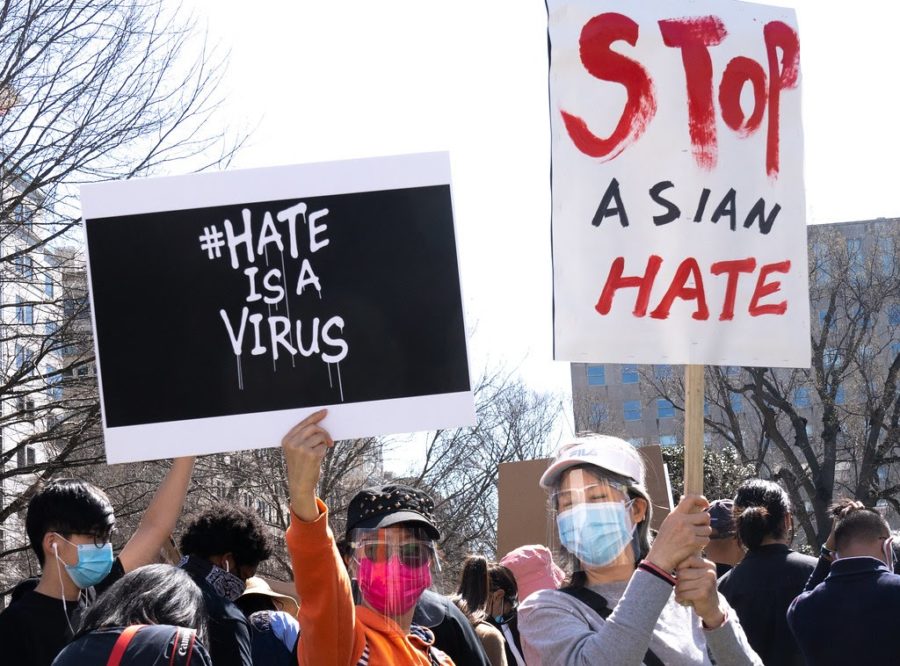


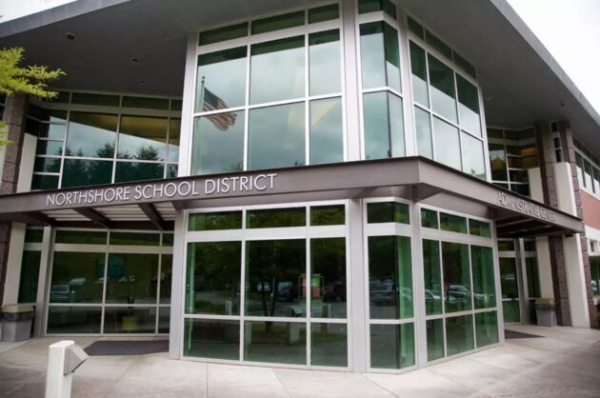
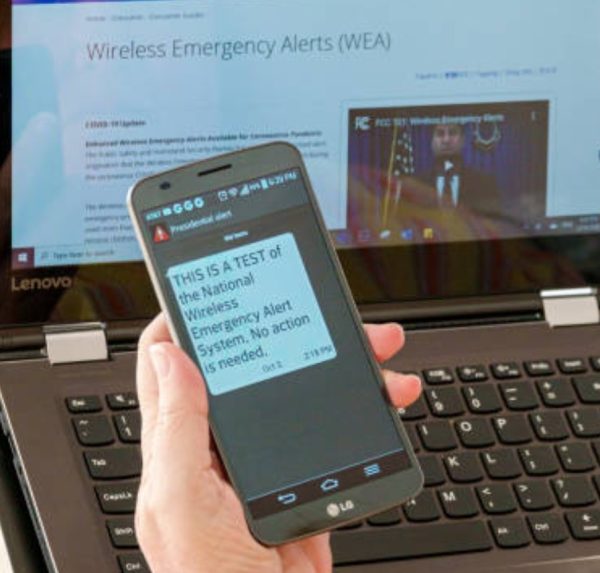

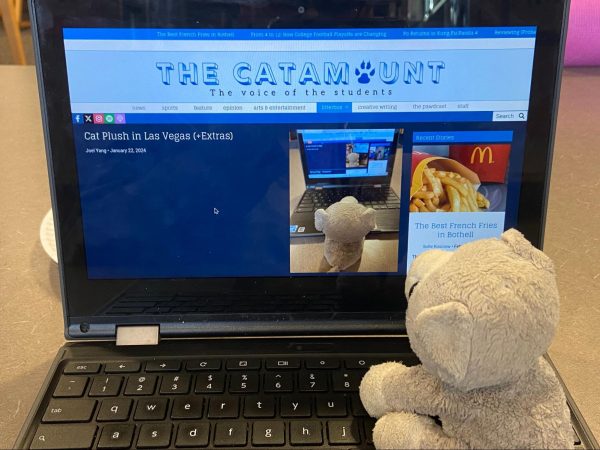




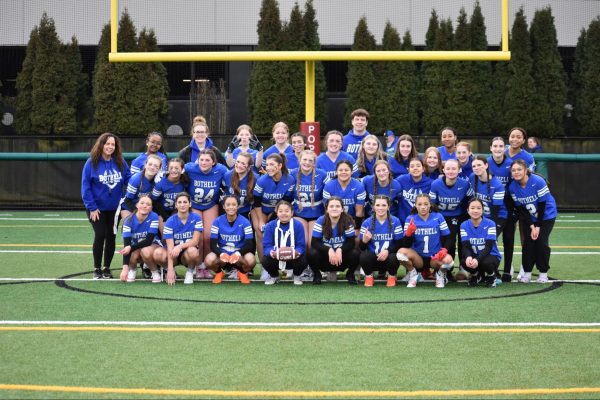

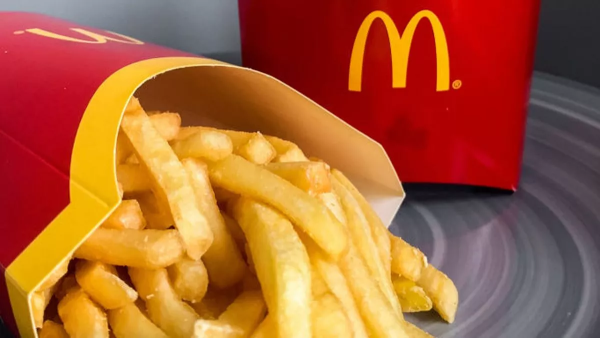


wendy wands • Jun 17, 2021 at 2:20 pm
I am amazed and saddened how hate has become so prevalent in our society/world. The attacks on the Asian community is horrifying. My daughter has a friend who is Asian with a child and has voided doing much in the public with her child in fear of being attacked. The elderly being knocked to the ground is beyond horrific, and yet, it is not only Asian, hate crimes to continue to be on the rise. We have to find ways to bring everyone together, but, I am uncertain that I will see this in my lifetime.
My brother is the Mayor of Ellensburg. He has had coffee chats and visited homes, he has promoted being civil in his city and he has had death threats, now having to get several cameras at his home. He want fairness and people to talk, and yet…
Thanks for you excellent article.